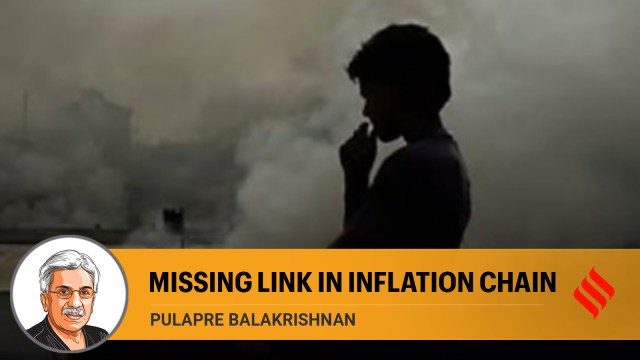
In a recent interview, Prime Minister Narendra Modi highlighted as one of the successes of his tenure that inflation has been lower since 2014. Inflation has indeed been lower on average since, but three related points need recognition. First, inflation was already declining before 2014. Second, India’s economy slowed after 2016, which could not but have contributed to lower inflation. Finally, the decade since 2014 divides in two, with inflation declining in the first half and accelerating in the second. The sharpest acceleration was in 2019-20, which was before the Covid pandemic and the war in Ukraine. This points to the role of domestic factors in this inflationary episode.
A defining feature of inflation since 2019 is the high inflation among food products. In the past five years, this group of goods has contributed substantially to overall inflation, the direct contribution often exceeding 50 per cent. The indirect contribution, working via industrial cost, would have been higher. That this has got the government worried is evident in a measure that it has brought in with effect from April 1. From this date on, till further notice, entities ranging from wholesale traders to retailers dealing in rice and wheat have to report their stock holding to the government on every Friday. It appears that in a fit of desperation, the government is veering away from its earlier commitment to repeal the Essential Commodities Act. However, the move is unlikely to make much of a difference to current inflation.
It is a mistake to assume that traders in rice and wheat can cause inflation. Unlike in the case of goods such as gold or fossil fuels, these are perishable goods and traders run the risk of their degradation while holding them. Moreover, there is an annual crop cycle, and the historical pattern in India has been that the harvest season price declines as the new crop comes in. This means that the trader has an incentive to not hold stock across the cropping year out of fear of making a loss. In such a market, the price is largely set by fluctuations in the weather from year to year. Traders make a profit of course but are an unlikely source of inflation, for they have no control over production. In agricultural markets, or what we may term the market for raw produce, prices are driven by the supply-demand imbalance.
What about the retail trade sector? The surge in inflation post-Covid in the US triggered an explanation in terms of the role of large food retailers in hiking prices. But US inflation has declined substantially since, suggesting that while pricing power enables the large food retailers to earn high profits it is a different thing to say that they can cause inflation, which is a continuing rise in prices. In the case of the US, they were most likely passing on the rise in their costs due to the supply disruption resulting from the lockdowns. In India, the role of food retailers is likely to be even less likely. The retail sector in India includes both the kirana store and the supermarket chain. As yet the market share of the latter is not high. Note that this is unlike the situation in the global market for crude oil.
For reasons given, the government’s recent move on stock holding with respect to rice and wheat can serve as no more than optics. First, food products extend far beyond cereals to pulses, wheat and milk, all of which have been subject to inflation. Presumably, the action against grain traders is more visible. Second, we are witnessing here the impact of a deeper phenomenon, and that is global warming driving climate change. The impact of rising temperatures on wheat yields in north India has been known for some time now.
Further, while estimates of the output of wheat for the marketing year 2023-24 is yet unavailable, trade estimates suggest that production is the lowest in five years. There is a rumour making the rounds that the government may implement an export ban. This will ensure greater availability in the domestic market, cooling inflation. However, both the monitoring of private stocks, with a view to preventing an imagined speculation, and export bans do not address the central issue of inadequate supply. The usefulness of focusing on wheat is that we can see this clearly. However, wheat is only a small part of the food basket. Thus, the high food inflation in India since 2019 implies that the production of agricultural products is not keeping up with the demand for them.
At the global level, the prognosis is that global warming will ensure rising food prices. There is an ecological aspect to the rising food inflation of the past four years. This must be tackled head-on by addressing the problem of a declining water table, evaporation of soil moisture and depleting top-soil, all of which directly lower yield, lowering agricultural output. The world does not have more land to grow crops.
In the midst of this high and persisting food inflation, which leaves a high proportion of the Indian population without access to a healthy diet, India is saddled with an inappropriate anti-inflation policy. Termed ‘inflation targeting’, the current policy is geared to lowering output growth to ostensibly cure inflation. It is easy to see how hopeless it is when inflation in India is due to a persistent shortfall of the supply relative to demand of almost every agricultural product that we consume.
The writer is an economist
© The Indian Express Pvt Ltd
First uploaded on: 17-04-2024 at 08:10 IST


